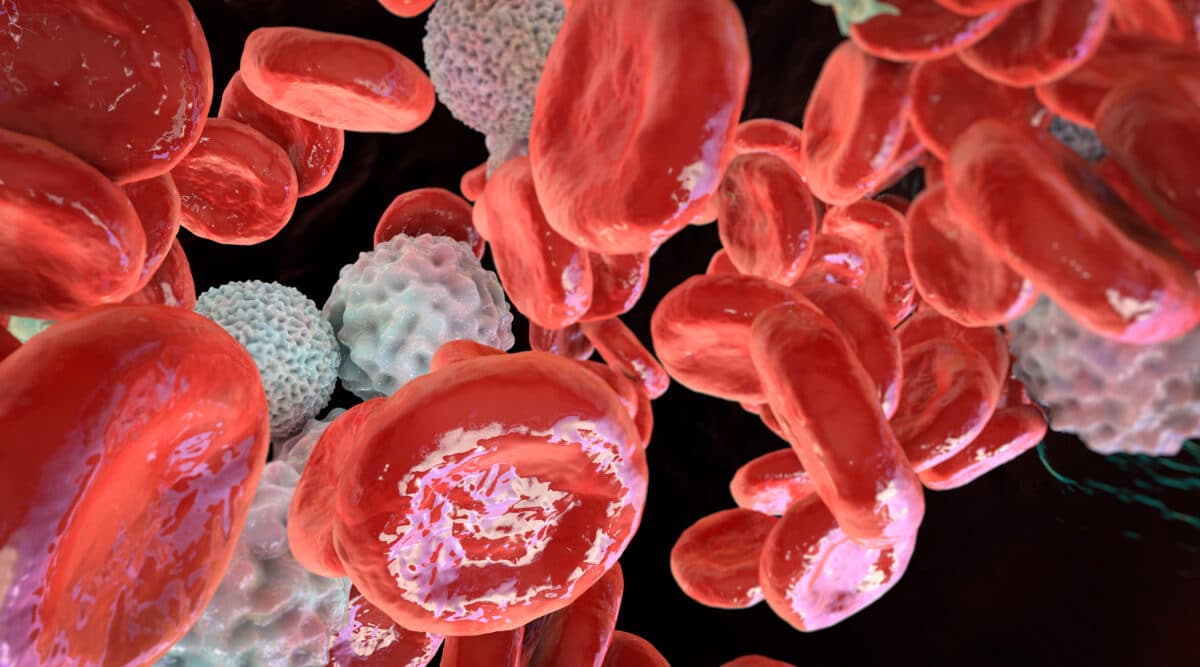Last week the FDA approved a new therapy, BESREMi (ropeginterferon alfa-2b-njft) from PharmaEssentia, for the treatment of adults with polycythemia vera (PV). The drug was granted an orphan designation. BESREMi is administered subcutaneously.
Polycythemia Vera (PV) is a cancer that originates from a disease-initiating stem cell in the bone marrow leading to a chronic increase of red blood cells, white blood cells, and platelets. The cancer then frequently results in cardiovascular complications as well as secondary myelofibrosis or leukemia.
BESREMi is a long-acting interferon and is administered once every two weeks until hematologic targets are realized. Patients with a complete hematologic response can then be treated every four weeks.
Analysts expect the annual cost per patient per year (PPPY) to be in the $40,000 range. Details related to channel access were not released. As an orphan drug, BESREMi will very likely be released through limited distribution.
U.S. FDA Approves BESREMi (ropeginterferon alfa-2b-njft) as the Only Interferon for Adults With Polycythemia Vera
November 12, 2021 — BURLINGTON, Mass.–(BUSINESS WIRE)–PharmaEssentia Corporation (TPEx: 6446), a global biopharmaceutical innovator based in Taiwan leveraging deep expertise and proven scientific principles to deliver new biologics in hematology and oncology, today announced that the U.S. Food and Drug Administration (FDA) has approved BESREMi for the treatment of adults with polycythemia vera (PV).
“With the availability of an FDA-approved, next-generation interferon for this indication, it’s time that we focus on preserving the long-term health of patients with polycythemia vera.”
BESREMi is an innovative monopegylated, long-acting interferon, which exhibits its cellular effects in polycythemia vera in the bone marrow. BESREMi was approved with a boxed warning for risk of serious disorders including aggravation of neuropsychiatric, autoimmune, ischemic and infections disorders. PharmaEssentia is preparing to make BESREMi available in the coming weeks in the U.S.
“The FDA approval of BESREMi for people with polycythemia vera represents the next step in advancing patient care as it provides a critical addition to managing not only symptom burden and near-term complications, but also treating the cancer early, which may help reduce the risk of disease progression over time,” said Srdan Verstovsek, M.D., Ph.D., Director of the Hanns A. Pielenz Clinical Research Center for Myeloproliferative Neoplasms, Department of Leukemia at the University of Texas MD Anderson Cancer Center. “With the availability of an FDA-approved, next-generation interferon for this indication, it’s time that we focus on preserving the long-term health of patients with polycythemia vera.”
“The reality of living with a rare and chronic cancer like polycythemia vera is that it is often under recognized and the limited treatments available cannot properly address the disease beyond the symptoms. Our community welcomes the FDA approval of a new treatment that has the potential to deliver what has been unavailable for so many patients hoping for a better outlook,” said Ann Brazeau, CEO of MPN Advocacy and Education International.
The U.S. FDA approval was based on safety from the PEGINVERA and PROUD/ CONTINUATION-PV studies and efficacy data from the PEGINVERA clinical study program. The study showed that after 7.5 years of treatment with BESREMi, 61% of patients with PV experienced a complete hematological response (defined as hematocrit <45% without phlebotomy for at least 2 months since last phlebotomy, platelets ≤ 400 x 109/L, leukocytes ≤10 x 109/L, normal spleen size (longitudinal diameter ≤12 cm for females and ≤ 13 cm for males). Importantly, 80% of patients achieved a hematological response (based on objective laboratory parameters only, with the exclusion of normal spleen size and thrombosis). These parameters are the most commonly used metrics to make therapeutic decisions.1 In the pooled safety population of patients treated with BESREMi, the most common adverse reactions (incidence >40%) were influenza-like illness, arthralgia, fatigue, pruritis, nasopharyngitis, and musculoskeletal pain. Serious adverse reactions (incidence > 4%) were urinary tract infection, transient ischemic attack and depression.1
“We are incredibly proud to deliver on our goal of bringing treatments like BESREMi to the polycythemia vera community where there is clear unmet need for more effective, tolerable and durable treatments to preserve patients’ health and well-being,” said Ko-Chung Lin, Ph.D., Co-Founder and Chief Executive Officer for PharmaEssentia and inventor of ropeginterferon alfa-2b-njft. “As we begin working closely with the community to integrate this important treatment into clinical practice, we also continue to expand our scientific efforts to unlock the full potential of our pioneering molecule.”


